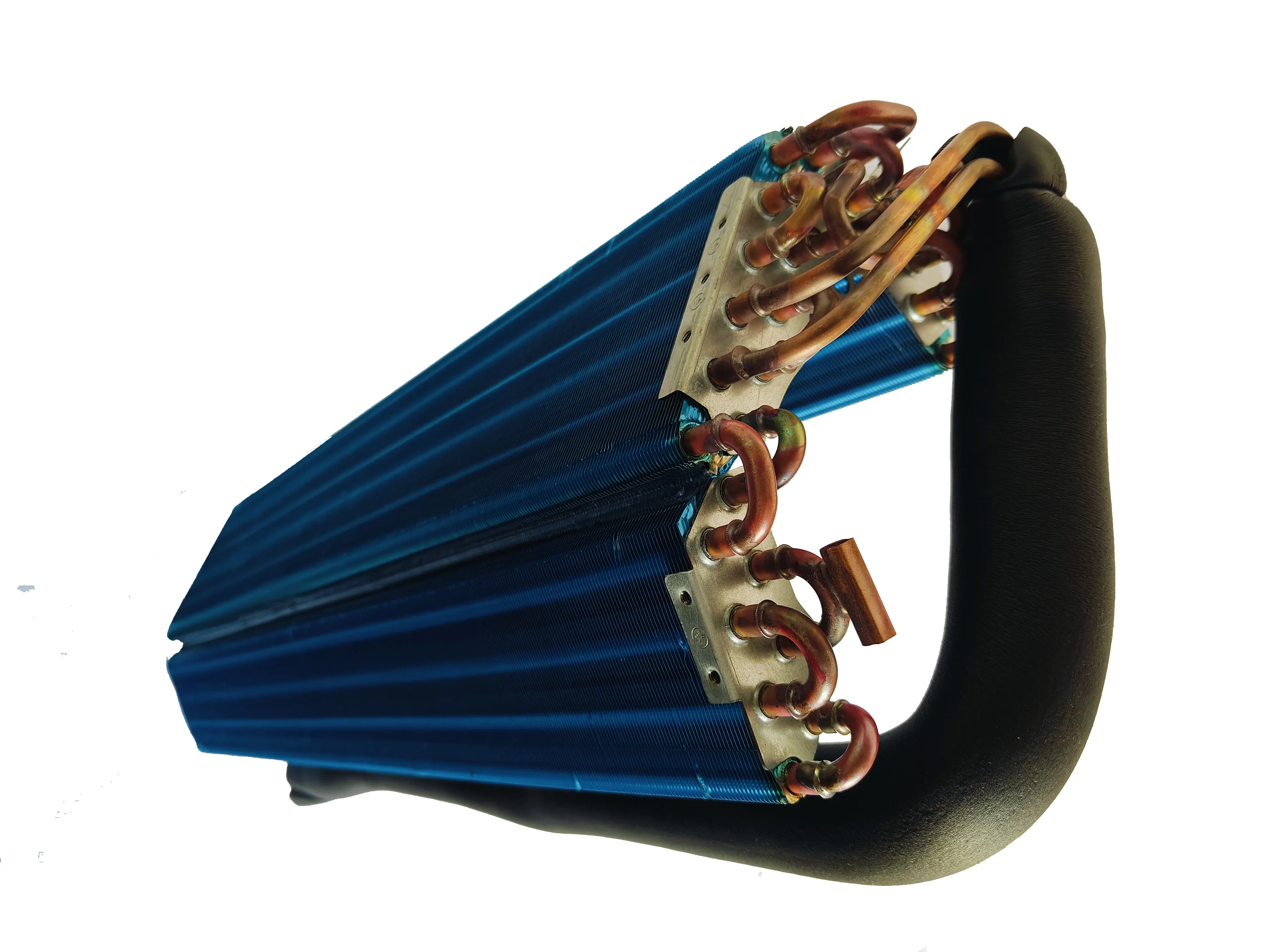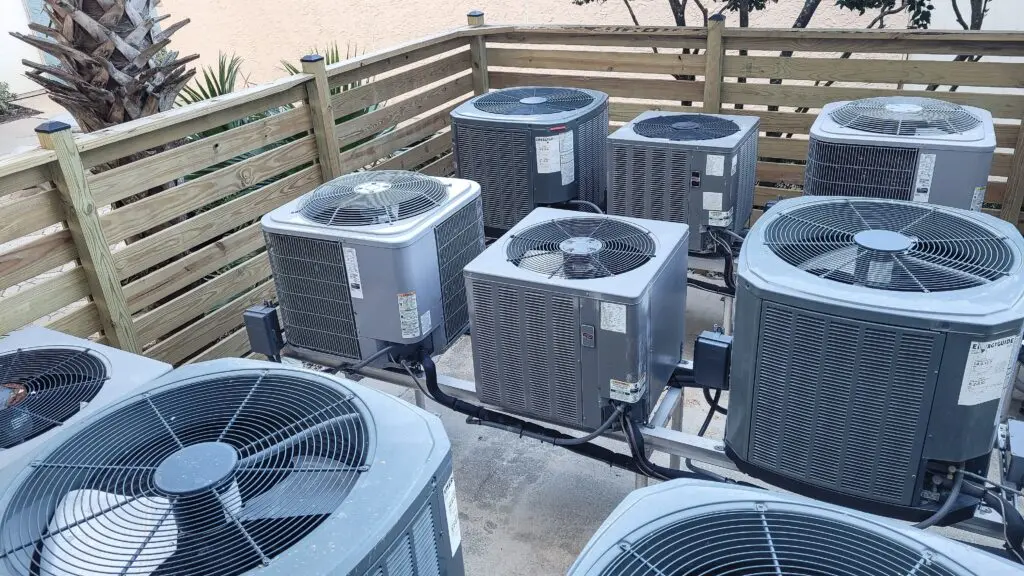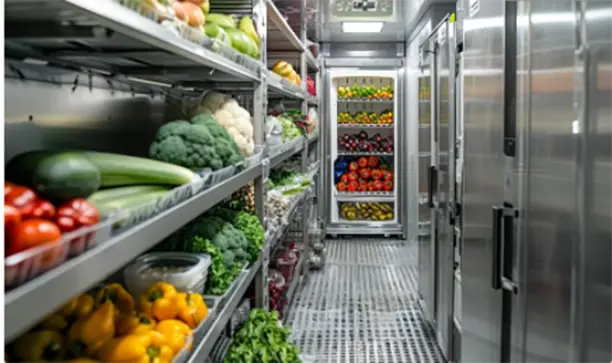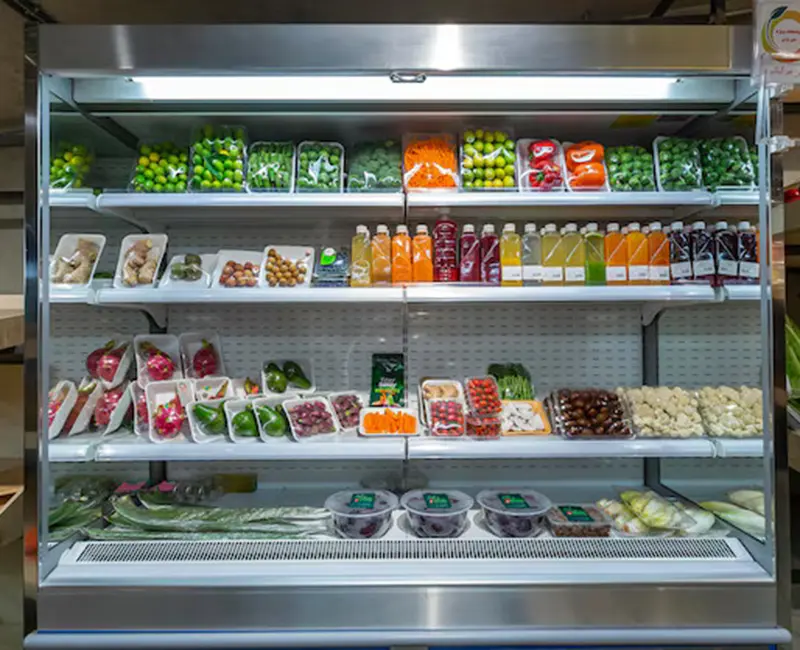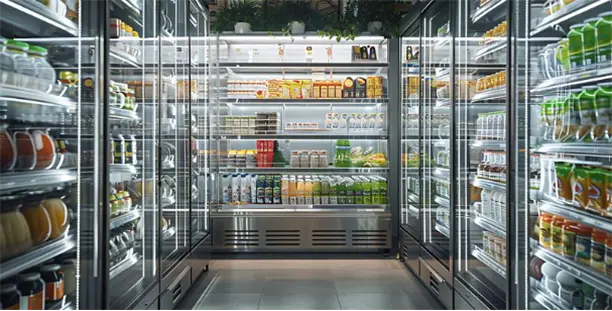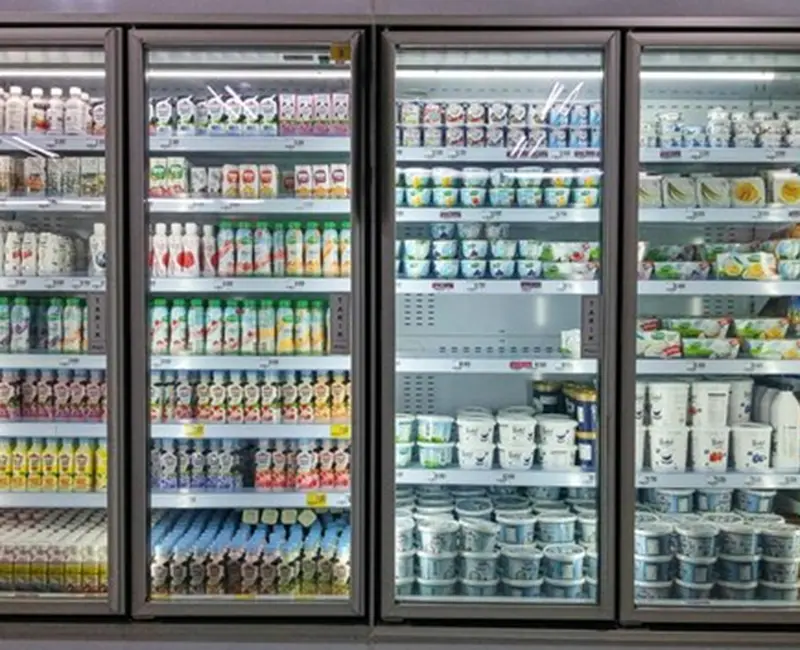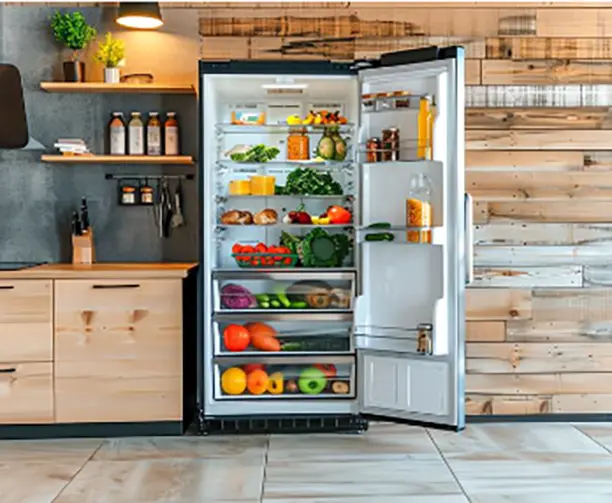The Rise of Energy-Efficient Cooling Systems: What It Means for Your Business

Energy-efficient cooling systems play a vital role in helping businesses reduce operational costs while achieving sustainability goals. Rising energy consumption has pushed over 90 countries to adopt Minimum Energy Performance Standards (MEPS) for air conditioners. These standards, along with labeling policies in more than 95 countries, now cover over 86% of global space cooling energy use in residential sectors. Businesses must embrace these advancements to stay competitive and meet evolving regulations.
I believe companies like senjun are leading the way in this transformation. Ningbo Senjun New Materials Co., Ltd. specializes in developing innovative cooling solutions, including wire tube condensers and copper aluminum fin heat exchangers. Their expertise spans applications such as refrigerators, freezers, and medical ultra-low temperature refrigerators. By adopting such advanced technologies, businesses can align with global energy efficiency trends and secure long-term benefits.
Key Takeaways
- Energy-saving cooling systems can cut utility costs, saving money.
- Using these systems lowers pollution, helping the Earth and meeting green goals.
- Companies can use government rewards and payment plans to cover starting costs.
- Adding smart tools and automation makes cooling better and workplaces comfier, helping workers do more.
- Working with experts like senjun gives businesses custom solutions for their cooling needs and rules.
Why Energy-Efficient Cooling Systems Are Essential for Businesses
Rising Energy Costs
The financial strain of traditional cooling systems
I’ve seen how traditional cooling systems can burden businesses with high utility bills. These systems often consume excessive energy, especially during peak seasons. Inefficient cooling leads to wasted electricity, which directly impacts operational budgets. For many businesses, heating and cooling expenses make up a significant portion of their energy costs. Without addressing this issue, companies risk losing profits to unnecessary energy waste.
How energy-efficient systems lower utility expenses
Energy-efficient cooling systems offer a practical solution. By upgrading to these systems, businesses can drastically reduce energy consumption. For example, technologies like HVAC upgrades and energy-efficient windows minimize energy waste. I’ve noticed that these systems not only lower utility bills but also improve indoor air quality. Cleaner air circulation contributes to healthier work environments, which boosts employee productivity. Over time, the savings from reduced energy costs outweigh the initial investment.
Environmental Responsibility
Reducing carbon footprints through energy-efficient technologies
Adopting energy-efficient cooling systems is one of the easiest ways to reduce a business’s carbon footprint. These systems consume less electricity, which means fewer greenhouse gas emissions from fossil fuel power generation. For instance, energy-efficient refrigeration systems can save 5.5 TWh of electricity annually. This is equivalent to removing over 1 million tonnes of CO2 from the atmosphere. I believe businesses that prioritize such technologies contribute significantly to environmental preservation.
Aligning with global and local sustainability initiatives
Energy-efficient cooling systems also align with global sustainability goals. Many companies, including senjun, are leading the charge by developing innovative solutions like natural refrigerants. These refrigerants have a low Global Warming Potential (GWP), reducing environmental impact. By integrating renewable energy sources, businesses can further optimize efficiency and reduce reliance on fossil fuels. I see this as a win-win for both the planet and the business.
Regulatory Compliance
Adhering to stricter energy efficiency standards
Governments worldwide are enforcing stricter energy efficiency standards. For example, Minimum Energy Performance Standards (MEPS) ensure that only efficient cooling systems remain in the market. Energy labels help businesses identify high-efficiency products. Metrics like SEER (Seasonal Energy Efficiency Ratio) and EER (Energy Efficiency Ratio) measure system performance, making it easier to comply with regulations. I’ve found that staying ahead of these standards not only ensures compliance but also enhances a company’s reputation.
Leveraging government incentives to offset costs
Many governments offer incentives to encourage the adoption of energy-efficient cooling systems. Subsidies and financing mechanisms reduce the upfront costs of these technologies. High-income countries even provide financial aid to support efficient cooling in low- and middle-income regions. I recommend exploring these opportunities to make the transition more affordable. Businesses that take advantage of these programs can achieve long-term savings while contributing to global energy efficiency efforts.
Key Trends in Energy-Efficient Cooling Systems
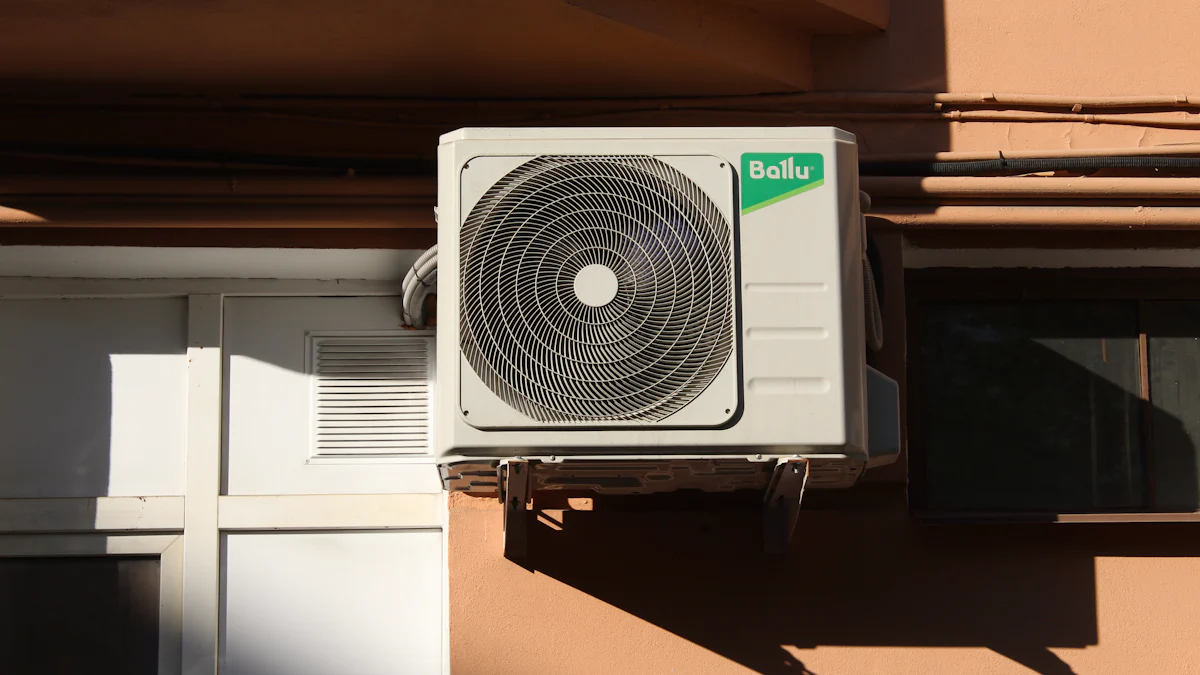
Smart Technologies
IoT-enabled systems for real-time energy monitoring
I’ve noticed how IoT-enabled systems are transforming energy-efficient cooling systems. These systems use sensors to collect real-time data on energy consumption, temperature, and system performance. For example, smart HVAC systems can adjust energy use based on occupancy and weather conditions, saving up to 30% on energy costs. AI-based predictive maintenance further enhances these systems by identifying potential faults before they occur. This proactive approach minimizes downtime and ensures consistent performance. With the global HVAC market expected to grow significantly, I believe IoT integration will become a standard feature in cooling technologies.
AI-driven optimization for enhanced performance
AI is revolutionizing cooling systems by optimizing energy use and improving efficiency. I’ve seen AI-enabled air conditioners adjust cooling settings based on external weather conditions, reducing electricity costs and carbon emissions. Machine learning algorithms refine these systems further by analyzing user habits and historical data. This allows businesses to personalize cooling strategies while maintaining energy efficiency. Experts predict that AI adoption will expand across industries, with 98% of leaders planning to incorporate AI strategies in the next few years. This trend highlights the growing importance of AI in managing energy-efficient cooling systems.
Renewable Energy Integration
Solar-powered and hybrid cooling systems
Renewable energy integration is another exciting trend. Solar-powered cooling systems, for instance, harness the sun’s energy to reduce reliance on traditional power sources. Hybrid systems combine renewable and conventional energy, offering greater efficiency and cost savings. I’ve observed that these systems not only lower utility bills but also significantly reduce greenhouse gas emissions. Businesses adopting such solutions can achieve both financial and environmental benefits.
Combining traditional and renewable energy sources for efficiency
Combining traditional and renewable energy sources creates a balanced approach to cooling. Hybrid HVAC systems operate more efficiently than traditional ones, providing consistent performance while reducing energy consumption. This integration also improves indoor air quality, enhancing comfort and health for employees. By adopting these systems, businesses can align with sustainability goals and reduce their carbon footprint.
Advanced Automation
Automated temperature control for consistent energy savings
Automation plays a crucial role in energy-efficient cooling systems. Automated temperature control ensures optimal cooling by adjusting settings based on real-time conditions. I’ve seen how this technology maintains consistent energy savings while creating a comfortable environment. Businesses benefit from reduced energy waste and improved operational efficiency.
Predictive maintenance to minimize downtime and costs
Predictive maintenance is another game-changer. It uses real-time data and advanced technologies like AI and IoT to monitor equipment conditions. For example, vibration analysis detects potential issues early, allowing for timely repairs. This approach reduces downtime, extends equipment lifespan, and enhances air quality. I recommend businesses explore predictive maintenance to maximize the benefits of energy-efficient cooling systems.
Eco-Friendly Refrigerants
Transitioning to low-GWP refrigerants for environmental compliance
I’ve noticed a growing shift toward low-GWP refrigerants in the cooling industry. These refrigerants are alternatives to hydrofluorocarbons (HFCs), which contribute significantly to greenhouse gas emissions. Governments worldwide are enforcing stricter regulations to limit the Global Warming Potential (GWP) of refrigerants used in HVAC systems. Standards like ASHRAE 34 and ASHRAE 15 ensure the safe and compliant use of these eco-friendly options. Consulting engineers must stay updated on these revisions to meet compliance requirements.
The transition to low-GWP refrigerants reflects a commitment to sustainability. Businesses adopting these refrigerants not only reduce their carbon footprint but also align with global environmental goals. I’ve seen how this shift benefits companies by enhancing their reputation and ensuring long-term regulatory compliance. For example, senjun’s advanced cooling solutions, such as copper aluminum fin heat exchangers, support the use of low-GWP refrigerants, making them an excellent choice for businesses prioritizing sustainability.
Innovative solutions for sustainable cooling
The industry is also exploring innovative technologies to enhance sustainable cooling. Natural refrigerants like CO2 stand out due to their minimal environmental impact, with a GWP of just 1. I’ve observed how thermoelectric cooling, which uses the Peltier effect, eliminates the need for chemical refrigerants altogether. Magnetic refrigeration, another cutting-edge solution, uses water as a working fluid and consumes less power, making it both efficient and eco-friendly.
Refrigerant tracking technology is another game-changer. It monitors refrigerant usage to minimize leaks, reducing environmental harm and operational costs. By integrating these innovations, businesses can achieve energy-efficient cooling systems that are both sustainable and cost-effective. Companies like senjun play a pivotal role in this transformation by offering tailored solutions that meet diverse business needs while supporting environmental compliance.
Benefits of Energy-Efficient Cooling Systems for Businesses
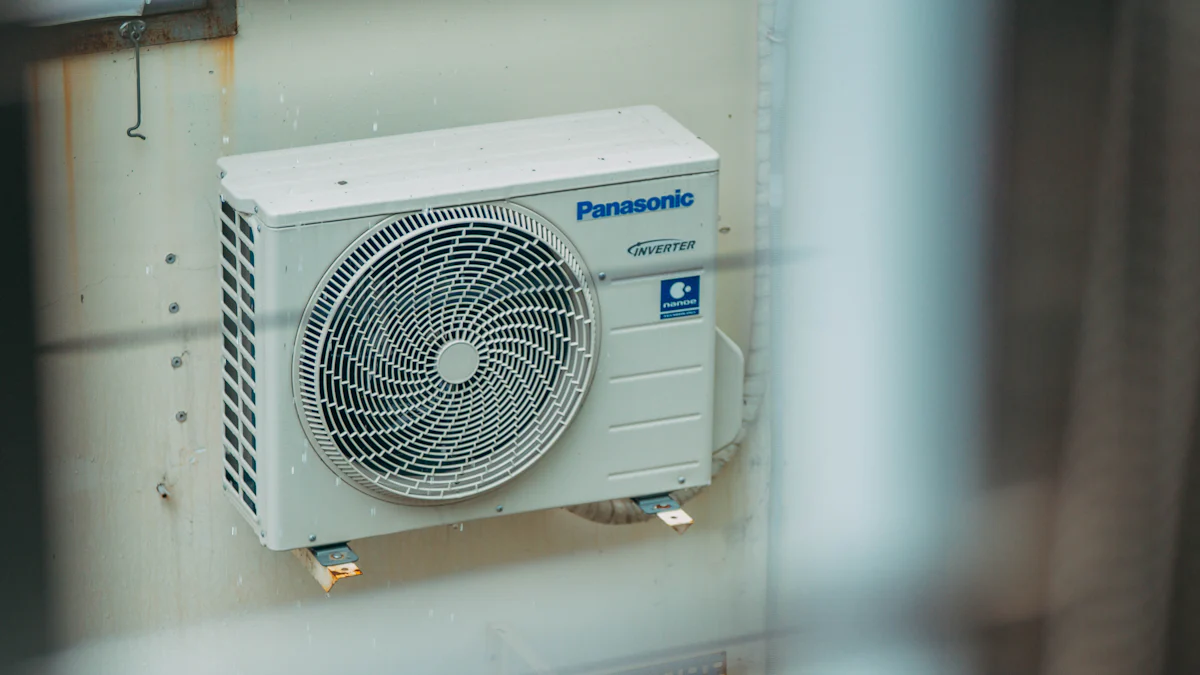
Cost Savings
Lower operational costs and utility bills
I’ve seen how energy-efficient cooling systems can significantly reduce operational costs. These systems consume less energy, which directly lowers utility bills. Heating and cooling expenses often account for a large portion of a business’s energy consumption. By upgrading to energy-efficient HVAC systems, businesses can cut down on energy waste. Features like improved insulation and energy-efficient windows further enhance savings. I believe these upgrades not only reduce costs but also attract environmentally conscious customers, driving business growth.
Long-term financial benefits despite initial investments
While the initial investment in energy-efficient cooling systems may seem high, the long-term financial benefits outweigh the costs. Over time, reduced energy consumption leads to substantial savings. Businesses also benefit from fewer maintenance needs due to the advanced technology in these systems. I’ve noticed that companies adopting these solutions often experience increased profitability. The financial advantages make energy-efficient cooling systems a smart investment for any business.
Improved Sustainability
Supporting corporate social responsibility (CSR) initiatives
Energy-efficient practices align perfectly with corporate social responsibility goals. By adopting these systems, businesses contribute to global efforts to reduce carbon emissions. I’ve observed how companies that prioritize sustainability enhance their brand reputation. They appeal to environmentally conscious consumers and partners. Implementing energy-efficient technologies also conserves resources, ensuring long-term energy savings. This approach reflects a commitment to both the environment and the community.
Contributing to a greener planet and better community relations
Energy-efficient cooling systems play a crucial role in creating a greener planet. These systems reduce greenhouse gas emissions, helping businesses lower their carbon footprint. I’ve seen how this fosters better community relations. Companies that adopt sustainable practices often gain the trust and support of their local communities. By choosing solutions like those offered by senjun, businesses can make a positive environmental impact while strengthening their community ties.
Enhanced Workplace Productivity
Creating a comfortable work environment for employees
A comfortable work environment is essential for employee productivity. Energy-efficient cooling systems ensure consistent indoor temperatures and good air quality. I’ve noticed how this reduces respiratory problems and fatigue among employees. Reliable air conditioning boosts morale and allows employees to focus better. Businesses that prioritize workplace comfort often see higher productivity levels and happier employees.
Reducing maintenance needs with advanced systems
Advanced cooling systems require less maintenance, which minimizes disruptions in the workplace. Predictive maintenance features identify potential issues early, preventing unexpected breakdowns. I’ve seen how this reduces downtime and keeps operations running smoothly. Employees can work without interruptions, leading to improved performance. By investing in energy-efficient cooling systems, businesses create a more productive and efficient work environment.
Enhanced Brand Reputation
Attracting eco-conscious customers and partners
I’ve noticed that businesses adopting energy-efficient cooling systems often gain a competitive edge by appealing to eco-conscious customers and partners. These systems align with sustainability goals, which resonate with individuals and organizations prioritizing environmental responsibility. Customers today actively seek brands that demonstrate a commitment to reducing their carbon footprint. By showcasing energy-efficient practices, businesses can strengthen customer loyalty and attract new clients who value sustainability.
Energy-efficient cooling systems also improve workplace health by ensuring better air quality and consistent temperatures. This creates a positive impression on partners and stakeholders. I’ve seen companies receive certifications or awards for their efforts in sustainability, further enhancing their credibility. For instance, senjun’s innovative cooling solutions, such as wire tube condensers and copper aluminum fin heat exchangers, help businesses achieve these goals. Their expertise in sustainable technologies makes them a valuable partner for companies aiming to build a strong, eco-friendly reputation.
Differentiating from competitors with sustainable practices
In my experience, businesses that adopt energy-efficient cooling systems stand out in competitive markets. These systems reduce operational costs, allowing companies to reinvest savings into other areas like product development or marketing. This financial advantage often translates into better services or products, giving businesses a unique selling point.
Sustainable practices also differentiate brands by showcasing their commitment to long-term environmental goals. I’ve observed that companies with energy-efficient operations often gain recognition as industry leaders. They set benchmarks for others to follow. By partnering with senjun, businesses can access tailored solutions that meet their specific needs. Senjun’s dedication to sustainability and advanced cooling technologies ensures that companies not only comply with regulations but also lead the way in innovation. This proactive approach helps businesses carve out a distinct identity in their industry.
Challenges and Solutions for Adopting Energy-Efficient Cooling Systems
Upfront Costs
The initial investment required for energy-efficient systems
I’ve noticed that one of the biggest hurdles for businesses is the upfront cost of energy-efficient cooling systems. These systems often require advanced technology, which can make the initial investment seem daunting. However, I believe this cost should be viewed as a long-term investment. Over time, the savings on energy bills and reduced maintenance expenses outweigh the initial expenditure. Businesses that delay this transition risk higher operational costs and missed opportunities for sustainability.
Exploring financing options and government subsidies
To ease the financial burden, businesses can explore various financing options. I’ve come across several effective solutions that make adopting energy-efficient cooling systems more affordable:
| Financing Option | Description |
|---|---|
| Cooling as a Service | A business model that provides energy-efficient cooling options to consumers, reducing costs. |
| On-bill or On-wage Finance | A financing mechanism that allows consumers to pay for energy-efficient products through their bills. |
| Government Subsidies | Financial support from governments to reduce upfront costs of renewable cooling systems. |
| Green Climate Fund | Financial aid for low- and middle-income countries to support energy-efficient cooling initiatives. |
These options help businesses overcome financial barriers and accelerate their transition to sustainable cooling technologies.
Need for Expertise
Lack of in-house knowledge about advanced cooling technologies
I’ve observed that many businesses lack the expertise needed to implement advanced energy-efficient cooling systems. Technologies like AI integration and renewable energy sources require specialized knowledge. For example, AI-driven systems optimize energy use and predict maintenance needs, but they demand a deep understanding of machine learning and IoT. Similarly, adopting eco-friendly technologies like liquid cooling requires expertise in sustainable practices.
Partnering with experts like senjun for seamless integration
To address this challenge, I recommend partnering with industry leaders like senjun. Their expertise in wire tube condensers and copper aluminum fin heat exchangers ensures seamless integration of energy-efficient cooling systems. Senjun’s innovative solutions cater to diverse applications, from refrigerators to medical ultra-low temperature refrigerators. By collaborating with experts, businesses can adopt cutting-edge technologies without the need for in-house specialization.
System Compatibility
Retrofitting challenges with existing infrastructure
Retrofitting existing infrastructure with energy-efficient cooling systems presents unique challenges. I’ve seen issues like oversized HVAC units, which account for 25% of rooftop systems, leading to inefficiencies and higher energy costs. Additionally, older buildings often struggle with poor thermal performance due to inadequate insulation or unsealed windows and doors.
| Challenge | Description |
|---|---|
| Energy Use | Heating and cooling systems account for significant electricity use. |
| Oversized Units | 25% of rooftop HVAC units are too large, leading to wear and higher energy expenses. |
| Thermal Performance | Focus on sealing windows and doors and reinsulating to prevent excess heat flow and heat loss. |
Choosing scalable and adaptable solutions for future needs
To overcome these challenges, I suggest choosing scalable and adaptable solutions. Businesses should prioritize systems that integrate seamlessly with existing infrastructure while allowing for future upgrades. Senjun’s cooling technologies, designed for diverse applications, offer the flexibility needed to meet evolving business requirements. This approach ensures long-term efficiency and compatibility.
senjun: A Leader in Energy-Efficient Cooling Solutions
About senjun
Overview of Ningbo Senjun New Materials Co., Ltd.
I’ve come across many companies in the cooling industry, but senjun stands out as a true innovator. Ningbo Senjun New Materials Co., Ltd. focuses on the research, development, and production of advanced cooling components. Their product range includes wire tube condensers and copper aluminum fin heat exchangers. These components power essential appliances like refrigerators, freezers, drinking fountains, and even medical ultra-low temperature refrigerators. Senjun’s expertise extends to ice makers, dehumidifiers, and display cabinets, making them a versatile player in the cooling market.
Expertise in wire tube condensers and copper aluminum fin heat exchangers
Senjun’s mastery lies in their ability to design and manufacture high-performance wire tube condensers and copper aluminum fin heat exchangers. These components are critical for efficient heat transfer, which directly impacts the performance of cooling systems. I’ve noticed that their solutions cater to a wide range of industries, from food storage to healthcare. This versatility ensures that businesses can rely on senjun for tailored cooling solutions that meet specific operational needs.
senjun’s Contribution to Energy Efficiency
Innovative cooling solutions for refrigerators, freezers, and more
Senjun has consistently delivered innovative cooling solutions that redefine efficiency. Their products enhance the performance of refrigerators, freezers, and other appliances by optimizing energy use. I’ve seen how their advanced designs reduce energy consumption without compromising cooling capacity. This makes their solutions ideal for businesses aiming to adopt energy-efficient cooling systems.
Commitment to sustainability and advanced cooling technologies
Senjun’s commitment to sustainability sets them apart. They integrate cutting-edge technologies to create eco-friendly cooling solutions. For example, their components support the use of low-GWP refrigerants, which align with global environmental goals. I believe senjun’s focus on sustainability not only benefits the planet but also helps businesses meet regulatory requirements and improve their green credentials.
Why Choose senjun
Proven track record in delivering energy-efficient cooling systems
Senjun’s proven track record speaks volumes about their reliability. Over the years, they’ve consistently delivered high-quality, energy-efficient cooling systems to businesses worldwide. I’ve observed how their solutions help companies reduce energy costs while maintaining top-notch performance. This makes senjun a trusted partner for businesses looking to upgrade their cooling infrastructure.
Tailored solutions for diverse business needs
What I find most impressive about senjun is their ability to provide tailored solutions. They understand that every business has unique cooling requirements. Whether it’s a medical facility needing ultra-low temperature refrigeration or a retail store requiring efficient display cabinets, senjun delivers customized solutions. Their flexibility ensures that businesses can achieve optimal efficiency and performance, no matter their industry.
Energy-efficient cooling systems have become essential for businesses aiming to save costs, achieve sustainability, and meet compliance standards. I’ve seen how adopting these systems transforms operations, making them more efficient and eco-friendly. Companies like senjun lead this shift with innovative solutions like wire tube condensers and copper aluminum fin heat exchangers. I encourage businesses to take proactive steps, such as conducting energy audits and partnering with experts like senjun. These actions ensure long-term benefits and a competitive edge in today’s market.
FAQ
What are energy-efficient cooling systems?
Energy-efficient cooling systems use advanced technologies to reduce energy consumption while maintaining optimal performance. These systems include features like smart automation, eco-friendly refrigerants, and renewable energy integration. I’ve seen how they help businesses save costs and meet sustainability goals.
How can senjun help my business adopt energy-efficient cooling?
Senjun specializes in wire tube condensers and copper aluminum fin heat exchangers. Their innovative solutions improve energy efficiency in appliances like refrigerators, freezers, and medical ultra-low temperature refrigerators. I recommend partnering with senjun for tailored cooling systems that align with your business needs.
Are energy-efficient cooling systems expensive to install?
The initial cost may seem high, but I’ve found that long-term savings on energy bills and maintenance outweigh the investment. Businesses can also explore financing options and government subsidies to make the transition more affordable.
What industries benefit most from energy-efficient cooling systems?
Industries like food storage, healthcare, and retail gain the most from these systems. For example, senjun’s solutions enhance refrigeration efficiency in medical facilities and display cabinets in retail stores. I believe any business with cooling needs can benefit.
Why should I choose senjun for cooling solutions?
Senjun offers a proven track record in delivering energy-efficient cooling systems. Their expertise in wire tube condensers and copper aluminum fin heat exchangers ensures high performance and sustainability. I trust their tailored solutions to meet diverse business requirements effectively.









